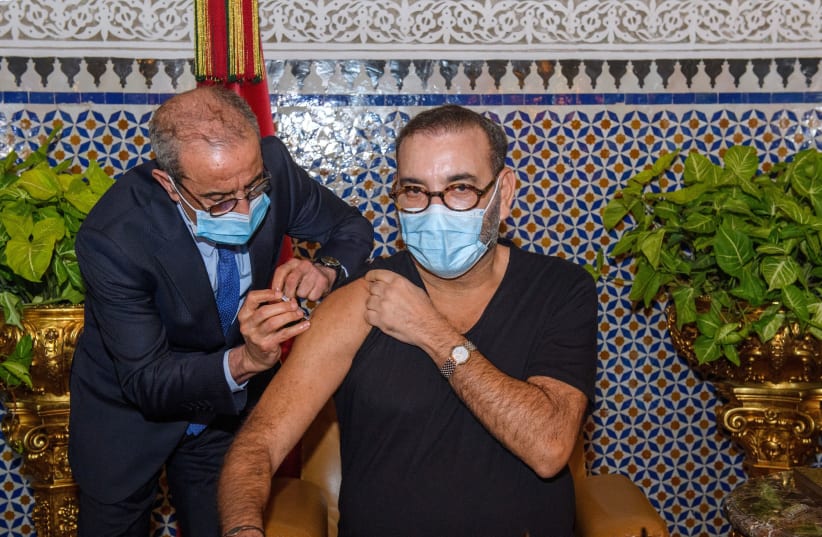Dr. Samir Machour, Senior Vice-President and Member of the Executive Committee of Samsung Biologics, who is keeping a close eye on this issue, told 2M TV, that the Kingdom is expected to receive 14 million doses of AstraZeneca by first week of April.
Meanwhile, on February 16, Morocco received 500,000 doses of Sinopharm's vaccine, bringing the number of doses received from the Chinese laboratory to 1 million.
The Moroccan order placed with Sinopharm relates to a total of 45 million doses compared to 20 million with AstraZeneca.
"This is what will enable us to ensure collective immunity in the country and return to normal life," health officials said.
As of Tuesday, over 2.5 million people have received their first dose across the country, the Moroccan Ministry of Health said in its daily COVID-19 update. Some 31,232 people have already received the second dose of the vaccine.
According to ourworldindata.org Morocco is 6th in the world in terms of percentage of its vaccinated population, after Israel, the United Arab Emirates, Great Britain, the United-States and Chile.
As of February 23, according to the Ministry of Health, 466 new cases of coronavirus and 808 recoveries were recorded. The new report brought the number of infections to 481,709 since the first case was reported last March.
The total death toll has reached 8,574, with 15 new cases recorded in the last 24 hours, implying a 1.8% fatality rate.
Based on these figures, it is clear that the situation in Morocco is far from comparable to most countries in the region especially after the emergence of new variants which marginally affected the Kingdom. In fact, only 24 cases of the British variant - the only one detected in the country - have been reported by the time of this writing.
Despite these reassuring figures, a night curfew is still in effect throughout Moroccan territory from 9 p.m. to 6 a.m. While restaurants, cafes, shops and supermarkets close at 8 p.m., festivities and gatherings remain prohibited across the country. Social distancing and preventive health measures during the day are advocated though not respected everywhere.
Casablanca concentrates most of the country's industrial and commercial activities. Its busy streets give the impression that the post-coronavirus era has already begun. This same momentum can be seen in most Moroccan cities. In Tangier, for example, the port of Tanger Med is running at full capacity just like Casablanca port.
However, COVID-19 dealt a hard blow to many activities. Events and recreation, cafes and restaurants, the automotive market, as well as other industries have been hit hard. In order to soften the repercussions of the crisis on employees, an emergency aid program was provided to a special fund initiated by King Mohammed VI just after the outbreak of the health crisis last year.
At the same time, in order to rescue companies facing difficulties, credit schemes were introduced at historically low rates by Moroccan banks.
